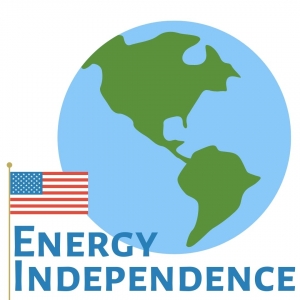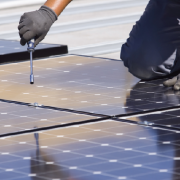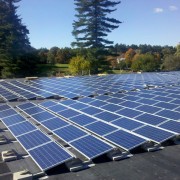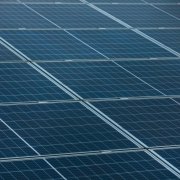Energy Independence
Global scale

We can talk about energy independence on both a global scale and individual level. On an international level, energy independence refers to producing sufficient energy in the United States to meet our country’s energy needs. If we can meet our needs by producing energy domestically, we will not depend on resources from foreign countries. Being dependent on other countries allows for energy prices to fluctuate based on events like wars, politics, or changes in supply and demand.
For example, the US is heavily dependent on other countries for oil and gas. Because of this, gas prices vary throughout the year. Take the energy crisis of the 1970s. A war in Israel caused oil shortages, and therefore huge spikes in gas prices in the United States. More recently, gas prices have seen an increase across the US due to increased demand for oil post-pandemic. The fluctuating price of gas creates instability in the US energy economy and is unpredictable to consumers.
So, if US could produce most of its own energy, then foreign affairs that change oil or energy prices would not have such a large effect on the economy like they do today. Thus, increasing energy independence will create more economic stability and security. Currently, renewable energy the most important way that the US can produce enough energy to sustain its population. Increasing the proportion of US energy that comes from renewables would greatly decrease our dependence on other countries.
Individual Level
 Energy independence also exists on an individual level. One of the main benefits of producing your own energy is energy security. With renewables such as solar panels, you know that you will always be able to produce your own energy regardless any problems with the grid. This is especially beneficial here in New England because of all the hurricanes and inclement weather that cause frequent power outages. Something as simple as a tree falling on a powerline during a storm can takedown the entire grid in an area for multiple days. However, if your home produces its own energy, there is no need to worry about this during a storm.
Energy independence also exists on an individual level. One of the main benefits of producing your own energy is energy security. With renewables such as solar panels, you know that you will always be able to produce your own energy regardless any problems with the grid. This is especially beneficial here in New England because of all the hurricanes and inclement weather that cause frequent power outages. Something as simple as a tree falling on a powerline during a storm can takedown the entire grid in an area for multiple days. However, if your home produces its own energy, there is no need to worry about this during a storm.
The second benefit of household energy independence is price predictability. Just like oil prices, electricity prices fluctuate based on the cost of fuels, consumer demand, local or global regulations, location, and more. When you produce your own energy with solar panels, you will always know the cost of your energy, because it will be free! Although installing a solar panel system comes at a high cost, you can plan for this. There are many different financing options to help you pay for the system. This type of payment is much more predictable than traditional electricity prices, which change due to a variety of factors and therefore are harder to plan for.
Similarly, traditional electricity prices tend to increase in the summer and winter, when there is high demand for heat and AC. However, with renewable energy you don’t need to feel guilt or stress over making your house a comfortable temperature!

Lastly, there are a variety of environmental benefits that you can feel good about when you produce your own renewable energy. So, producing your own energy can provide you security and predictability, as well as reducing your carbon footprint.
What is the energy transition?
The term “energy transition” is another phrase often used when talking about energy independence. Energy transitions are global shifts from using one type of energy to another. For example, humans transitioned from wood power to coal in the late 19th century.
However, now this term simply refers to the decarbonization of energy, or the switch from fossil fuels to renewables. The transition has already begun, as around 12% of energy consumed in the US comes from renewable sources. However, we still have a lot of work to do. This new energy transition to renewables will be the way that we achieve energy independence on both an individual level and a global scale.







